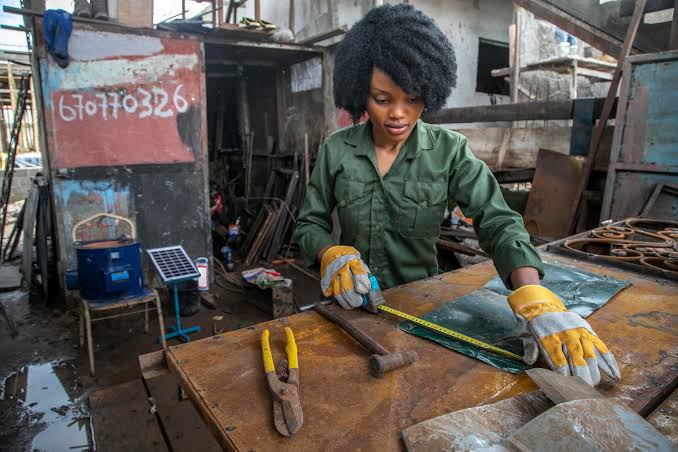Juveline Ngum Ngwa is transforming how Cameroonians handle waste management and air pollution. Growing up in Cameroon, she witnessed the damaging effects of improper waste disposal. Clogged drainage systems led to frequent floods, and respiratory problems were common. These challenges ignited a passion in Ngum to find solutions that protect the environment and improve public health. This drive led her to create Bleaglee, a company that turns waste into valuable resources.
Through Bleaglee, Ngum and her team have developed smokeless stoves crafted from recycled metal scraps and cooking fuel derived from biomass waste. These stoves drastically reduce indoor air pollution, a severe health risk in areas where firewood and charcoal remain primary cooking fuels. The harmful smoke from traditional methods leads to severe respiratory illnesses, but the company provides a safer and more affordable alternative. With its efficiency and health benefits, the innovation changes how communities cook and live.
“We are on a mission to combat carbon footprints in African kitchens with a safe cooking system made entirely from waste and to give cooks the knowledge and tools to offset their impact on the environment,” Ngum explains.
Beyond addressing environmental concerns, Bleaglee creates economic opportunities by training and employing individuals in recycling and stove production.
Cameroon generates significant quantities of metal and biomass waste, often discarded in ways that harm the environment. The company’s model mitigates this by recycling metal and transforming biomass waste into clean energy. Recycling metal conserves 75% of the energy needed for new manufacturing and reduces harmful emissions. Also, biomass fuel is an eco-friendly alternative to firewood, curbing deforestation and lowering greenhouse gas emissions.

The organisation integrates advanced technologies like drones and artificial intelligence to enhance operations. These tools help identify waste disposal sites, collect data, and assist local governments in organising cleanups and educational campaigns. Informal waste collectors, who often work in unsafe conditions, are given structured training, protective gear, and safer working environments. This system improves waste management and uplifts communities by fostering dignity and security in labour.
Gender inclusivity remains central to Ngum’s vision. Approximately 70% of Bleaglee’s workforce is female, with many women trained to produce and sell smokeless stoves. This initiative provides financial independence for women and enables them to play a leading role in environmental solutions. The stoves, designed for simplicity and efficiency, benefit households and small businesses by reducing cooking time and costs.
The company’s impact is visible in its growing reach. Over 400 individuals have been trained in waste collection and recycling, and thousands of households now use its clean cooking systems. These changes enhance public health and inspire communities to adopt sustainable practices.
Ngum’s efforts have earned international recognition, propelling Bleaglee’s mission to greater heights. By addressing the challenges of waste management and air pollution while empowering women and local communities, she is paving the way for a cleaner, healthier future for Africa.



